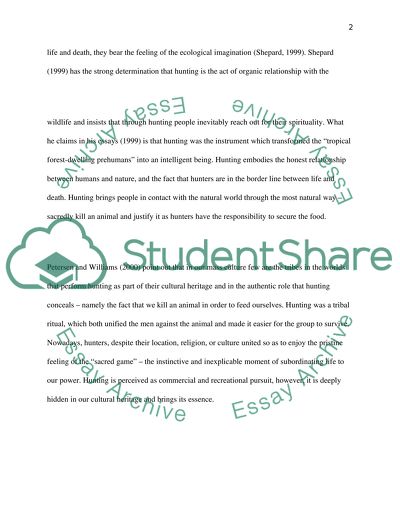Cite this document
(“Hunting as a Spiritual Exercise with the Earth Essay”, n.d.)
Retrieved de https://studentshare.org/miscellaneous/1525343-hunting-as-a-spiritual-exercise-with-the-earth
Retrieved de https://studentshare.org/miscellaneous/1525343-hunting-as-a-spiritual-exercise-with-the-earth
(Hunting As a Spiritual Exercise With the Earth Essay)
https://studentshare.org/miscellaneous/1525343-hunting-as-a-spiritual-exercise-with-the-earth.
https://studentshare.org/miscellaneous/1525343-hunting-as-a-spiritual-exercise-with-the-earth.
“Hunting As a Spiritual Exercise With the Earth Essay”, n.d. https://studentshare.org/miscellaneous/1525343-hunting-as-a-spiritual-exercise-with-the-earth.


